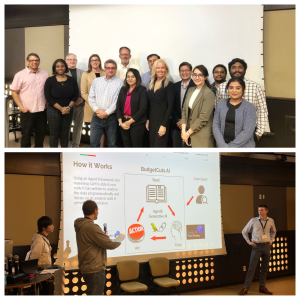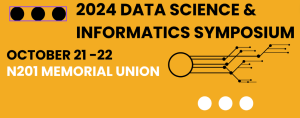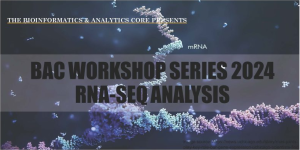
Sep. 17, 2025
$4 Million Grant to Fund Telehealth Research Center
Researchers from the University of Missouri School of Medicine, including MUIDSI Core Faculty member Dr. Mirna Becevic recently received nearly $4 million from the Health Resources and Service Administration to establish a center dedicated to improving rural telehealth care. More than 20% of the United States population – including 30% of Missourians – live in rural areas and face significant challenges to accessing health care. These communities typically have higher mortality rates and limited specialty care, and many of their closest hospitals are at risk of closure. While the growth of telehealth services has helped, lead researcher…

Sep. 5, 2025
Entrepreneur Quest gives MUIDSI students the ultimate “learn-by-doing” experience.
Two MUIDSI students, Paul Schuler (MS DSA program) and Jeffrey Appiagyei (Informatics PhD program) were recently awarded funding for their business ventures by Entrepreneur Quest (EQ).

Aug. 11, 2025
Tracking invasive pear trees with the help of AI
Mizzou’s Justin Krohn is tracking the location of invasive pear trees in Columbia. Invasive plants are meeting their match. Driven by the desire to protect Missouri’s ecosystems, a University of Missouri research team created a low-cost method to track the spread of invasive Callery pear trees in mid-Missouri — shedding light on where they are now and where they might be headed. These trees, known for their rapid growth, ecological harm and unpleasant odor, have overtaken large swaths of the Midwest and Eastern United States, crowding out native species and breaking easily during storms. In response, Missouri’s legislature recently joined…

March 4, 2025
MUIDSI GSO Hosts 2025 Generative AI for Social Good Hackathon
Congratulations to the MUIDSI Graduate Student Organization for hosting the 2025 Generative AI for Social Good Hackathon from February 24-28. A total of 17 teams, with 47 participants from diverse academic backgrounds, showcased their innovative AI-driven solutions, addressing real-world challenges through the power of Generative AI. This year’s competition fostered interdisciplinary collaboration, with students representing nine different departments, including Computer Science, Mechanical Engineering, Industrial & Systems Engineering, Civil Engineering, Electrical Engineering, The Department of Biomedical Informatics, Biostatistics and Medical Epidemiology (BBME), Life Sciences, Statistics, and the Institute for Data Science and Informatics. Participants presented groundbreaking projects, competing in a highly engaging and…

Feb. 7, 2025
AMIA LEAD Fund Scholarship Awardees Announced
Congratulations to MUIDSI PhD student and MUIDSI Graduate Student Organization president Sonia Akter for being one of six 2025 AMIA LEAD Fund Scholarship recipients. The scholarship covers a portion of meeting registration for these selected presenters, many of whom are participating with AMIA for the first time. Be sure to check out their presentations at the AMIA 2025 Informatics Summit.

Dec. 4, 2024
Mizzou establishes IBM Quantum Innovation Center
Quantum information and computing open new horizons for innovation in data science and informatics. Over the past few years, MU IDSI’s Director, Chi-Ren Shyu, has collaborated with IBM to establish the Quantum Innovation Center (QIC) at Mizzou. We extend our gratitude to the MU leadership team for bringing this transformative vision to life. The QIC will provide the interdisciplinary research community with cutting-edge capabilities to advance science in fields such as healthcare, geospatial analytics, plant genomics, cybersecurity, material engineering, and beyond. Access to state-of-the-art quantum computing resources is critical for conducting serious quantum research and demonstrating quantum advantages. Most importantly,…

Oct. 14, 2024
2024 MUIDSI Symposium
The 14th Missouri Data Science and Informatics Symposium will be held on October 21-22, 2024. This year’s theme is “Using Artificial General Intelligence for Good.” We are excited to present exceptional keynote speakers, faculty research highlights, student presentations and posters. In addition to academic talks, we are featuring industry presentations showcasing emerging technologies in AI and quantum computing. This symposium continues a proud tradition of being organized by the MU IDSI Graduate Student Organization (GSO), which handles everything from planning to execution. For more details on the program, please visit: Symposium Program to register for the Symposium.

July 23, 2024
Becevic receives Gold Chalk Award
Mirna Becevic, PhD, assistant professor of dermatology, was recently honored with the Gold Chalk Award for her contributions to education and training of graduate and professional students. She is the first School of Medicine recipient of the prestigious award since 2011.

Feb. 19, 2024